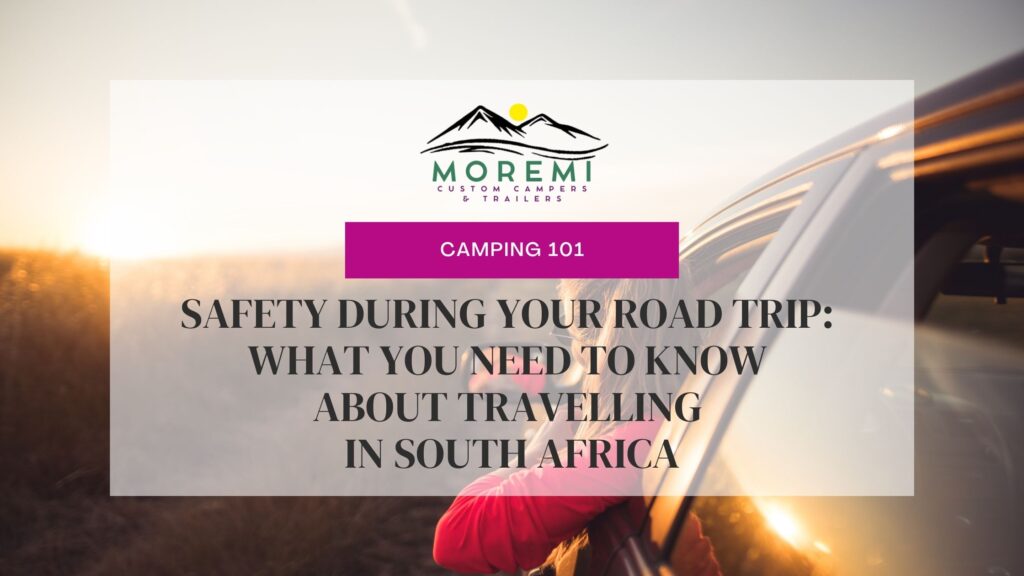South Africa is renowned for its stunning landscapes, vibrant culture, and diverse wildlife, making it a top destination for road trips. However, as with any travel adventure, ensuring safety on the road is crucial. Whether you’re exploring the scenic Garden Route, embarking on a safari adventure, or cruising through the picturesque Winelands, being well-prepared can make your journey both enjoyable and safe. Here’s a comprehensive guide to help you navigate South Africa with confidence and ease.
1. Plan Your Route and Stops
Research Your Route: Before setting off, plan your route carefully. South Africa’s road network is extensive, and knowing your route helps avoid getting lost. Use reliable maps and GPS systems to track your journey.
Plan Rest Stops: Long drives can be tiring. Schedule regular breaks to rest, stretch, and refuel both your vehicle and yourself. Ensure that your stops are in safe and well-populated areas.
2. Vehicle Preparation
Check Your Vehicle: Ensure your vehicle is in good condition before starting your trip. Check the oil, tyres, brakes, and coolant levels. Carry a spare tyre, jack, and basic toolkit for emergencies.
Emergency Kit: Pack an emergency kit including a first aid kit, jumper cables, a flashlight, and a fire extinguisher. In South Africa, it’s also wise to carry a reflective triangle and a basic repair kit.
Insurance: Make sure your vehicle insurance is comprehensive and covers road trip scenarios. Ensure you have contact information for your insurance provider in case of an emergency.
3. Driving Safety
Adhere to Speed Limits: Speed limits are strictly enforced in South Africa. Follow the posted limits to avoid fines and accidents. In urban areas, the speed limit is typically 60 km/h, while on highways, it’s usually 120 km/h.
Beware of Wildlife: When driving through rural or national park areas, be vigilant for wildlife crossing the roads. Animals such as kudu and baboons can suddenly appear, especially at dusk and dawn.
Road Conditions: South African roads are generally well-maintained, but be cautious of potholes and uneven surfaces. In rural areas, roads may be less predictable, so drive slowly and cautiously.
4. Personal Safety
Avoid Night Driving: While it’s not always avoidable, try to minimise driving after dark. Nighttime driving can be more hazardous due to reduced visibility and increased risk of encountering wildlife or other hazards.
Keep Valuables Secure: Store valuables out of sight and lock your vehicle when not in use. Avoid leaving bags, electronics, or personal items visible, as this can attract opportunistic thieves.
Stay Informed: Keep up to date with local news and travel advisories. Be aware of any areas to avoid due to safety concerns or local disturbances.
5. Health Precautions
Hydration and Snacks: Keep plenty of water and snacks in your vehicle, especially if you’re travelling through remote areas where amenities may be scarce.
Sun Protection: South Africa’s sun can be intense. Wear sunscreen, a hat, and sunglasses to protect yourself from sunburn. Apply sunscreen regularly and stay hydrated.
Medical Kit: Pack a basic medical kit with essentials such as pain relievers, bandages, antiseptic wipes, and any personal medications. Be prepared for minor injuries and illnesses.
6. Communication and Navigation
Cell Phone and Charger: Ensure your cell phone is fully charged and carry a car charger. Having a working phone is essential for navigation and emergencies.
Local Emergency Numbers: Familiarise yourself with local emergency numbers:
- Emergency Services (Police, Ambulance, Fire): 10111
- Roadside Assistance: Contact your insurance provider or local roadside assistance services for support.
Navigation Apps: Use reliable navigation apps like Google Maps or Waze to stay on track and avoid traffic. These apps also provide real-time updates on road conditions and closures.
7. Respect Local Customs
Cultural Sensitivity: South Africa is diverse, with various cultures and languages. Respect local customs and traditions. Be polite and considerate to local residents and follow any local regulations or guidelines.
Environmental Responsibility: Practice responsible tourism by respecting natural habitats and wildlife. Follow the principles of “leave no trace” and dispose of waste properly.
Final Thoughts
Travelling in South Africa offers incredible experiences, from breathtaking landscapes to vibrant cities and wildlife adventures. By planning ahead, ensuring your vehicle is roadworthy, and following safety guidelines, you can enjoy a smooth and memorable road trip. Stay alert, be prepared, and embrace the beauty of South Africa with confidence and safety in mind. Happy travels!

